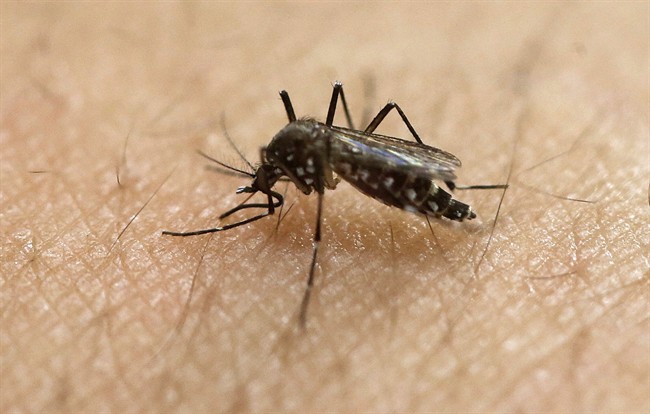In a race to stop the Zika virus from spreading even further, a cutting-edge collaboration has formed in Saskatchewan to support local researchers in their quest to conduct work that will be the first of its kind in the world.

Jeremy Harrison, the provincial minister responsible for innovation, announced Friday that the government would be providing $150,000 in funding to VIDO-InterVac to accelerate efforts in combating the virus.
READ MORE: Here’s how hard Zika virus hit Canadian tourists last year
The research funding will account for more than one-fifth of the total cost of the three-year project as the number of Zika cases around the globe continues to rise.
“We’ve had cases here in this country and we think that this an important endeavour,” Harrison said.
“We’re pleased to be part of it as part of what is a very, very impressive partnership from a world leading institution here in Saskatoon.”
The Zika virus is known for causing birth abnormalities in newborns and has spread to more than 50 countries.

A new study released earlier this week revealed just how hard the mosquito and sexually transmitted disease has hit Canadians. Of more than 1,000 travellers studied between October 2015 and September 2016 – 41 had the virus.
Three pregnant women had become infected and two ended up with infections that affected their babies.
“We’re trying to understand how this disease causes microcephaly in babies,” Dr. Volker Gerdts, associate director of research at VIDO-InterVac, said.
“So having a better animal model that allows us addresses exactly that – will prove where there is a link between infection and microcephaly or not and how it really works.”
READ MORE: Doctors tie Zika virus to heart problems in some adults
Once researchers unlock this portion of the mystery, companies can then begin to test new vaccines or drugs in order to stop the virus entirely.
The work being done by a team of approximately 20 will centre on a swine model for the virus which is considered to be a world first.
“Fetal pigs are actually susceptible so they can be infected and so know you can study what you would see in humans.”
Work on infecting pregnant animals is already underway and preliminary results are expected within the next two years.
“All we’re offering aside from basic science is for the vaccine companies is a way to mitigate risk so if you can decrease the risk of the product before you take into humans, so you’re better off,” Dr. Andrew Potter, director and CEO of VIDO-InterVac, said.
READ MORE: Number of Zika cases in B.C. quadruples
In the fall, the World Health Organization (WHO) declared that Zika was no longer an international public health emergency – but cases continue to emerge.
“There is already vaccines in developing so by having a better model, it will maybe allow them to test this much quicker so maybe with a little bit of luck maybe in a few years,” Dr. Gerdts said.



Comments